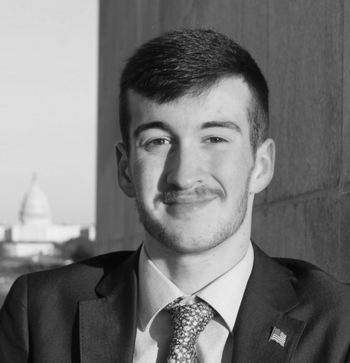BYU reaffirms Mormon faith as it stops vocal clinics for transgender patients
Brigham Young University recently stopped offering vocal therapy to transgender individuals seeking to change their voice.
The move is aligned with the Mormon religion's teachings.
Brigham Young University (BYU), an institution of the Church of Jesus Christ of Latter-Day Saints (LDS) in Utah, recently stopped offering certain clinical services to transgender individuals in fidelity to its religious commitments.
The school’s Speech and Language Clinic discontinued the services earlier this year.
Before the discontinuation, transgender individuals were allowed to “use the vocal training [offered by the clinic] to make their voices reflect their gender identity,” according to a July 8 report by United Press International.
The decision to terminate these services was in accord with official LDS church Policies and Guidelines, which state that “[g]ender is an essential characteristic of Heavenly Father’s plan of happiness. The intended meaning of gender in the family proclamation is biological sex at birth.“
“Church leaders counsel against elective medical or surgical intervention for the purpose of attempting to transition to the opposite gender of a person’s biological sex at birth (’sex reassignment’). Leaders advise that taking these actions will be cause for Church membership restrictions,” the handbook reads.
[RELATED: UND scraps ‘Gender Inclusion’ policy proposal after Catholic org warns parents]
Campus Reform spoke with multiple BYU community members, all of which agreed with their school’s decision to halt these services.
Brayden Cook, a student at BYU, was “relieved” to hear the news.
“Gender is eternal and no amount of social transitioning will change biological reality,” Cook told Campus Reform.
He went on to emphasize the importance of respecting God’s creation.
“Religious institutions, like BYU, must step up and stand for truth in the midst of chaos. God created us as males and females in His image and we cannot change that biological fact. Props to BYU for ending this practice,” Cook said.
Another BYU student, Luke Hanson, discussed the importance of upholding the church’s moral guidelines with Campus Reform, especially when the church funds BYU.
“BYU receives a large portion of its funding from the Church, which in turn receives its funding from members across the world paying tithing,” Hanson relayed.
He continued, “So it is unconscionable…that this [money] should go towards funding services that are in opposition to Church teachings.”
Thomas Stevenson, the last BYU student Campus Reform spoke with, said, “I’m glad BYU is starting to push back against policy driven by woke ideological premises.”
Stevenson is also a Campus Reform Correspondent.
“The church is explicitly against social transition and holds the position that gender is an eternal characteristic of each person. Gender in this sense is synonymous with sex,” Stevenson explained.
[RELATED: This is how 10 Catholic universities deviate from Church teachings]
Since the services were ended, an investigation was launched by the Council on Academic Accreditation in Audiology and Speech-Language Pathology (CAA), and the university drew harsh criticism from the American Speech-Language-Hearing Association (ASHA).
On February 11, ASHA released a statement condemning BYU’s decision.
“The decision by the Brigham Young University (BYU) administration to require their Department of Communication Disorders to end all voice and communication services at its Speech and Language Clinic for transgender clients is in direct opposition to practice expected of ASHA members and contrary to the ASHA Code of Ethics (2016),” the statement reads.
The statement goes on to assert that “ASHA recognizes gender affirming voice and communication services for transgender and gender diverse populations within the speech-language pathology scope of practice.”
The CAA, which is responsible for accrediting BYU’s MS education program in speech-language pathology, sent BYU a letter on March 29 informing them of the investigation.
In the letter, CAA questions whether the BYU program “complies” with standards for accreditation, including “Equitable Treatment” and “Diversity Reflected into the Curriculum.”
The investigation was dropped in early June, however, according to BYU’s Media Relations Manager, Todd Hollingshead.
“In early June, BYU was notified by the Council on Academic Accreditation (CAA) that after considering the complaint and BYU’s submitted response, the Council determined that it would not be carrying out an investigation and that BYU’s program remains in compliance with CAA’s Standards for Accreditation,” Hollingshead explained to Campus Reform.
Campus Reform reached out to each group and individual mentioned in this article for comment. This article will be updated accordingly.
The Church of Jesus Christ of Latter-Day Saints chose not to comment.
Follow @thelogandubil on Twitter

